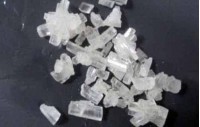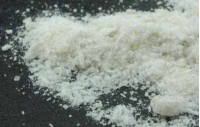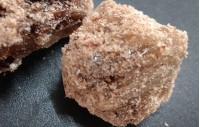
Buy Ephenidine for sale online - USA vendor

- FREE shipping, 6-7 days delivery time
- Inner sending exist.
The main payment option is Bitcoin. As extra ways WU, MG.
We alwayse provide FREE samples of Top products with the main order.
Loyalty program exist, second order will be - 5%OFF
Safely work only with us! We provide - re-shipment guarantees.
Here you'll discover unused lawful items of immaculate quality.
Some time recently purchase if you don't mind make beyond any doubt that the items beneath your curiously are lawful in your country.
We do not offer a pharmaceutical items or beneath control items.
Table of Contents
- Introduction
- History and Culture
- Chemistry
- Pharmacology
- Dosage Guidelines
- Physical Effects
- Visual Effects
- Cognitive Effects
- Auditory and Transpersonal Effects
- Toxicity, Addiction, and Harm Reduction
- Dangerous Interactions
- Legal Status
Introduction
Ephenidine, also known as NEDPA and EPE, belongs to the lesser-known novel dissociative substances falling under the diarylethylamine class. Structurally akin to diarylethylamines like diphenidine and methoxphenidine, ephenidine operates as an NMDA receptor antagonist, with notable effects encompassing sedation, hallucinations, anesthesia, and inducing out-of-body states, often termed as "dissociative anesthesia".
Background
Initially studied for its potential in treating neurotoxic injuries in humans, ephenidine entered the realm of recreational drug use following the 2013 U.K. arylcyclohexylamine ban. It emerged in the online research chemical market, often promoted alongside diphenidine and methoxphenidine as an alternative to methoxetamine (MXE), despite users reporting distinctive effects.
Pharmacological Properties and Usage
Despite its emergence in recreational circles, comprehensive data regarding the pharmacological properties, metabolism, and toxicity of ephenidine remains scarce. The history of human usage is extremely limited, presenting significant challenges in understanding its potential risks and effects.
Safety Concerns
The abuse of diarylethylamines, including ephenidine, has been associated with both fatal and non-fatal overdoses. Reports suggest that these substances may present distinct risks compared to traditional dissociatives. Consequently, it is strongly recommended to employ harm reduction practices when engaging with ephenidine or related substances.
Unveiling Ephenidine: A Designer Drug
History and Culture
Ephenidine is classified as a designer drug, a category encompassing substances engineered to mimic the functional and structural attributes of commonly used illicit drugs. This design aims to evade government regulations on controlled substances.
Chemistry
Belonging to the diarylethylamine class, ephenidine comprises a substituted phenethylamine skeleton with an additional phenyl ring bound to Rα. An ethyl chain is attached to the terminal amine RN of the phenethylamine. While structurally analogous to diphenidine and MXP, ephenidine differs in its dissociative properties, lacking a piperidine substitution.
Pharmacology
Ephenidine functions as an antagonist of the NMDA receptor (Ki = 66.4 nM), a pivotal receptor subtype for glutamate, the principal excitatory neurotransmitter in the central nervous system (CNS). Blockade of NMDA channels induces effects ranging from anesthesia to immobilization, with higher doses leading to experiences akin to the "K-hole".
Additionally, ephenidine exhibits weaker affinity for dopamine and norepinephrine transporters (379 nM and 841 nM, respectively), along with binding sites for σ1R (629 nM) and σ2R (722 nM).
Subjective Effects
Reports suggest that vaporizing or smoking ephenidine results in a much faster onset and shorter half-life. However, this method of consumption raises concerns about potential carcinogenicity with excessive heat. User experiences indicate that vaporization or plugging may require as little as 20% of the common oral dose for an individual.
Disclaimer: The subjective effects listed below are sourced from the Subjective Effect Index (SEI), which relies on anecdotal user reports and personal analyses from contributors. Therefore, they should be interpreted with caution. It's essential to recognize that these effects may not manifest consistently, and higher doses increase the likelihood of adverse effects, including addiction, severe injury, or even fatality.
Delving into Dosage Guidelines for Ephenidine
Threshold
- Threshold Dose: 30 mg
Light
- Light Dose Range: 30 - 70 mg
Common
- Common Dose Range: 70 - 100 mg
Strong
- Strong Dose Range: 100 - 150 mg
Heavy
- Heavy Dose: 150 mg and above
Investigating Physical Effects of Ephenidine
Stimulation
- Ephenidine induces stimulating effects at lower doses, albeit less intense than those of diphenidine or methoxphenidine.
Tactile and Spatial Effects
- Tactile disconnection
- Spatial disorientation
Pain and Cough Relief
- Pain relief
- Cough suppression
Appetite and Nausea
- Appetite suppression
- Nausea (inconsistently reported)
Sensory Alterations
- Changes in felt gravity
- Spontaneous physical sensations
- Tactile suppression (numbness)
- Motor control loss
- Perception of bodily lightness
- Gait alteration
Delving into Visual Effects
Visual Suppression
- Suppression of visual perception
- Visual disconnection (leading to "k-hole" experiences)
- Visual acuity suppression
- Double vision
- Pattern recognition suppression
- Frame rate suppression
Distortions and Hallucinations
- Drifting (melting, flowing, breathing, morphing)
- Perspective distortions
- Environmental orbism and cubism
- Scenery slicing
- Geometry (distinct and psychedelic)
Exploring Cognitive Effects
General Cognitive States
- Thought acceleration and deceleration
- Depersonalization and derealization
- Dream potentiation
- Consciousness disconnection
- Memory suppression
- Ego death and inflation
- Motivation enhancement
- Analysis suppression
- Time distortion
- Cognitive euphoria
- Novelty and creativity enhancement
- Introspection and déjà vu
- Compulsive redosing
- Anxiety suppression
- Disinhibition
- Amnesia
- Increased music appreciation
- Personal meaning enhancement
- Decreased libido
Auditory and Transpersonal Effects
Auditory Effects
- Auditory enhancement, suppression, distortion, and hallucination
Transpersonal Effects
- Existential self-realization
Toxicity, Addiction, and Legal Status
Toxicity and Harm Potential
- Limited scientific study on toxicity and long-term effects
- Recommended harm reduction practices
Tolerance and Addiction
- Moderate addictive potential
- Tolerance development and cross-tolerance with other dissociatives
- Withdrawal effects upon cessation
Dangerous Interactions
- Potential for dangerous interactions with other substances
Legal Status
- Illegal in several countries due to structural similarity to controlled substances like lefetamine
- Canada: Classified as a Schedule I controlled substance, possession without authorization may result in imprisonment.
- Germany: Controlled under the NpSG (New Psychoactive Substances Act) as a derivative of 2-Phenylethylamine.
- Sweden: Scheduled substance following classification as hazardous.
- Switzerland: Named under Verzeichnis E as a controlled substance.
- Turkey: Classed as an illegal drug, possession, production, supply, or import is prohibited.
- United Kingdom: Illegal to produce, supply, or import under the Psychoactive Substance Act.
- United States: Potentially considered a positional isomer of SPA (lefetamine), a Schedule IV drug, though prosecution under this clause is rare.
Understanding these physical, cognitive, and legal aspects of ephenidine is crucial for ensuring safe usage and navigating its regulatory landscape.
Frequently Asked Questions (FAQ)
1. What is ephenidine?
Ephenidine is a novel dissociative substance belonging to the diarylethylamine class, known for its NMDA receptor antagonist properties.
2. How does ephenidine compare to other dissociatives?
Ephenidine shares structural similarities with diphenidine and methoxphenidine but offers distinct effects, including stimulating properties at lower doses.
3. What are the typical dosage ranges for ephenidine?
Dosage ranges from a threshold of 30 mg to heavy doses exceeding 150 mg, with effects varying from light stimulation to dissociative anesthesia.
4. What are the physical effects of ephenidine?
Physical effects include tactile disconnection, spatial disorientation, pain relief, and motor control loss, among others.
5. What visual effects can be expected from ephenidine?
Visual effects range from visual suppression to distortions and hallucinations, including drifting, perspective distortions, and environmental orbism.
6. Are there cognitive effects associated with ephenidine use?
Yes, cognitive effects include thought acceleration, depersonalization, memory suppression, and time distortion, among others.
7. Is ephenidine addictive?
Ephenidine has a moderate potential for addiction and psychological dependence with chronic use.
8. What are the legal implications of ephenidine use?
Ephenidine is illegal in several countries due to its structural similarity to controlled substances, with varying degrees of legal enforcement.
9. How can users minimize harm when using ephenidine?
It is strongly recommended to practice harm reduction strategies, such as starting with low doses, avoiding dangerous interactions, and seeking medical assistance if needed.
1kg $1590
200g $590
1kg $1590
1kg $1590
100g $580
100g $510
500g $1080
1kg $2100
500g $1199
1kg $1590
300g $850
100mg $840











